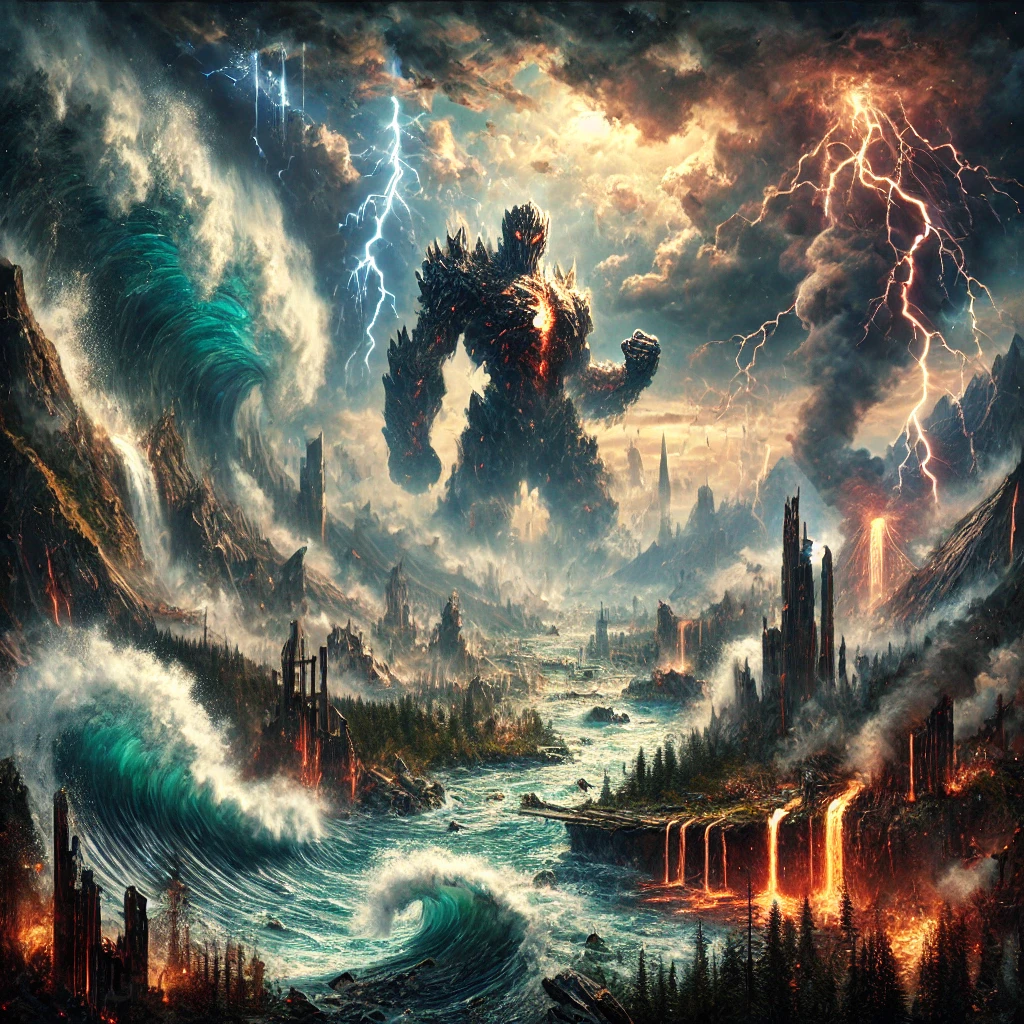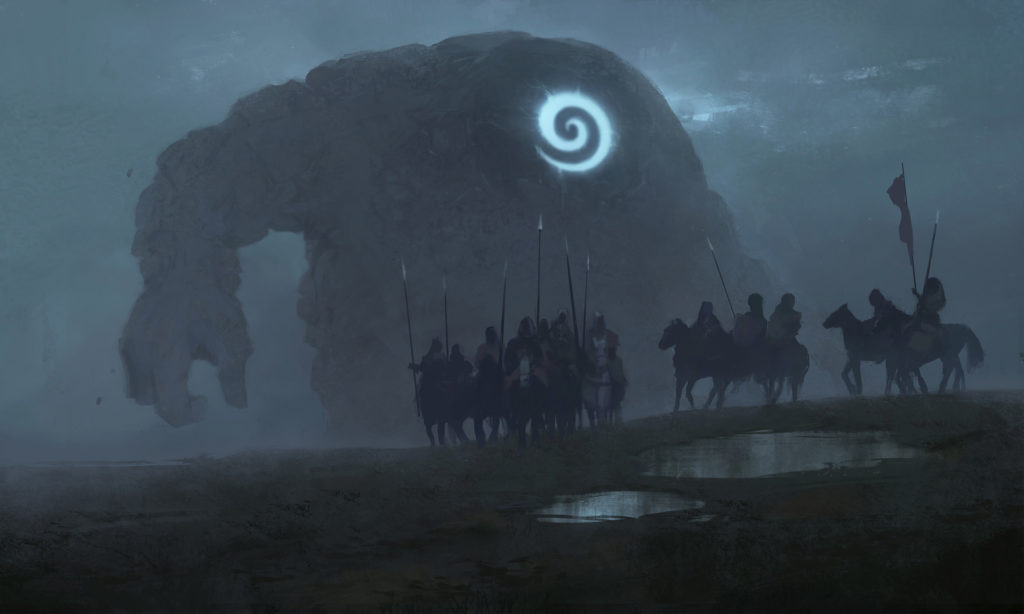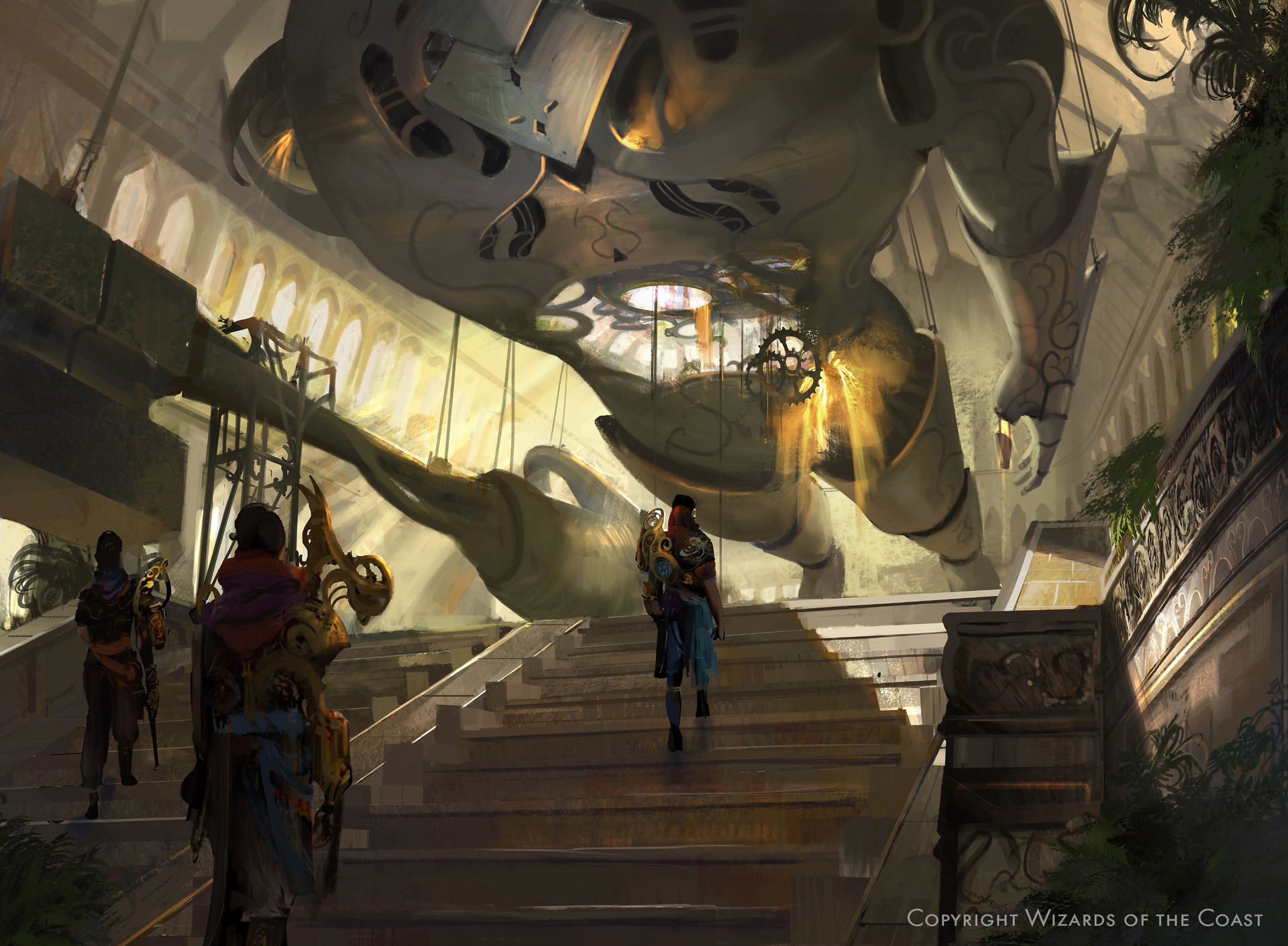Welcome to
The Augural Strand
It’s been six hundred years since the Cataclysm, and the people of Caebor have forged new lives in its wake. Along the Augural Strand eight nations have emerged from the ruins, bringing with them wonderful stories, troubling secrets and much more to be discovered.
The Cataclysm
We are the descendants of those who survived.
There are a precious few still around who can recall the final days of the Cataclysm nearly 600 years ago, but none left who can recall its start.
So much of our past—the Old World—was swallowed in the roiling elements as the land and seas and air raged. Continents, rent apart into scattered masses of stone and soil, hanging untethered in space like ice in a glass. Swarms of raindrops hunting madly, punching pinholes through whatever met their path like buckshot through flesh. Flame, lumbering in herds, stopping only to graze upon whomsoever they claimed as their hapless tinder before lumbering on.
The Old World was ravaged, until, at last, the dust settled and our new world was born: Caebor.

The Tectonics of Caebor
The Cataclysm was not a battle won.
It was a lesson learned.
You see, there’s a reason we still don’t set out into the wilderness alone. It’s the same reason sailors don’t venture far into open waters and why miners won’t touch the Mountain Barrows. We may have built our homes here, but this world ain’t ours.
The druids call ‘em simply the spirits—not gods, not rulers, but souls, like yours or mine. These spirits are entwined with the earth and flame and water. They’re the elementals that make up all of the energy and matter of the material world, the life woven into the fabric of our universe.
Most folks, however, call ’em Tectonics.
The Nature of Magic
They speak in streams and storms,
in flame and frost,
in sea’s tide and season’s turn.
They speak in magic.
You know those sounds—almost like words—that you hear in the summer breeze? The ever-so-subtle shifting of branches in a quiet forest? The pools of water that gather in the strangest of places? It’s all a part of a primal language, the language of the natural world.
There are some who’ve learned to “speak” that primal language, who have figured out the syllables, the strange recipes, the sacred movements. These casters use that language to guide the Tectonics, to shepherd them into moving and bending and changing. Casters can even manipulate their own or others’ spirits—what some would call the mortal Soul—to soothe wounds, inflict harm or transform the body.
What sets casters apart is how they wield this power. For druids, spellcasting is a cooperative dance, a give and take with the spiritual energy of the universe. For wizards, it’s a deeply complex science. For sorcerers, it’s a rare and unexpected gift. Clerics and warlocks, they draw strength from distant worlds and use this power to influence the Tectonics, to manipulate time and space, bend reality to their—or their benefactor’s—will. Many use this strength for the greater good. Some are not so gracious.
What you’ve got to know, kid, is this: Magic may be all around us, but it sure ain’t free and I’m not just talking about spell components. You can only bend the Tectonics so much before they snap.
Most of the time, the old titans hardly seem to notice us. Sling a fireball or two, and the Tectonics will carry on as if nothing’s changed. The Tectonics are ancient, enormous forces of unquantifiable power; what may be catastrophic for us is little more than a nuisance to them.
But everything’s got its limits. And let me tell you, they don’t give no warnings when you’ve crossed the line.
The Era of Artifice
Nowadays, for better or worse, most folk don’t bother picking up a spellbook for themselves.
Why learn the spell when you can buy the gadget?
The invention of the Alchemical Engine changed everything. You got locomotives tearing across the region, airships soaring the skies alongside the birds and Aarakocra. Even Fellnoble, the “city of lights,” is lit up using power from those enchanted turbines.
Part metal, part magic, the Alchemical Engine turns matter into pure elemental energy. That energy, in turn, keeps spells running far longer than any one caster could on their own. They call it “elemental transmutation,” but some would say that’s sugarcoating it.
It’s the smoke that gives it away, the curdled smog of alchemy as the engine eats away at the material—the Tectonics—around it, cannibalizing them for the magic inside. It ain’t pretty, and that’s why you want an artificer with both the know-how and the finesse to do it just right. It only takes a spark of that juice to light up a town—or just as easily blast one to bits.
You know those “Runes” that the kids are always on, texting this and posting that? Well, that’s all thanks to the artificers up at Runeiverse Inc. in the Ampere Alliance. They’re behind all those little gizmos that help you get through the day—but there are still a lot of folks who are skeptical of their work.
Travel across the Augural Strand, and you’ll see that no two people feel the same way about artifice. Some folks have embraced it all the way, roads lined with light and machines that build machines to plow our fields. Others, like the folk of the forest, don’t want no part of it.





